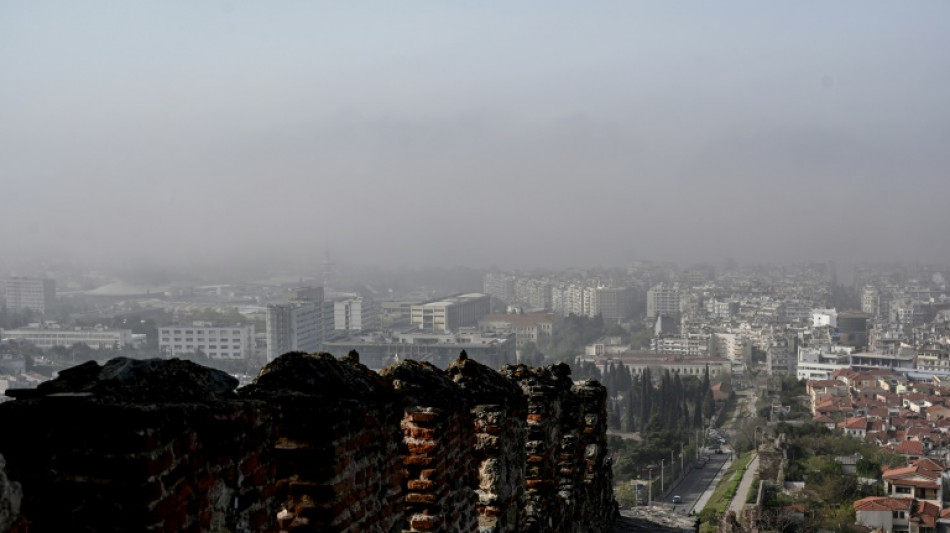

Greece hit again by high temperatures, Saharan dust
Thick clouds of dust blown in from the Sahara once again covered Greek skies Monday, especially Athens and Thessalonika, with temperatures rising as high as 31°C (88°F).
The dust storms, which had already affected Greece last week as well as regions such as Switzerland and Southern France, made breathing difficult for many people.
A high of 26°C was forecast in the capital Athens Monday, which public television station ERT described as conditions more akin to May.
Thermometers in the south of the Peleponnese and on the island of Euboea near Athens are expected to hit 31°C Monday.
Asthma sufferers and other vulnerable people "should avoid outdoor exercise as well as strenuous manual labour," Stamatoula Tsikrikas, head of the Greek Pulmonologists' Union, told ERT.
The union warned that the dust could mix with pollen, bacteria and fungi, resulting in "a highly toxic mixture that is dangerous for the human body."
Pulmonology professor Thodoris Vasilakopoulos recommended on television station ANT1 that vulnerable people should wear masks and sunglasses.
Thick clouds resulted in several flight delays in Thessalonika, according to local media.
Weather forecasters say temperatures should start to come down from Wednesday.
J.Fletcher--NG



